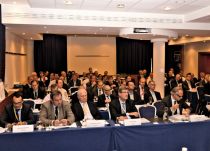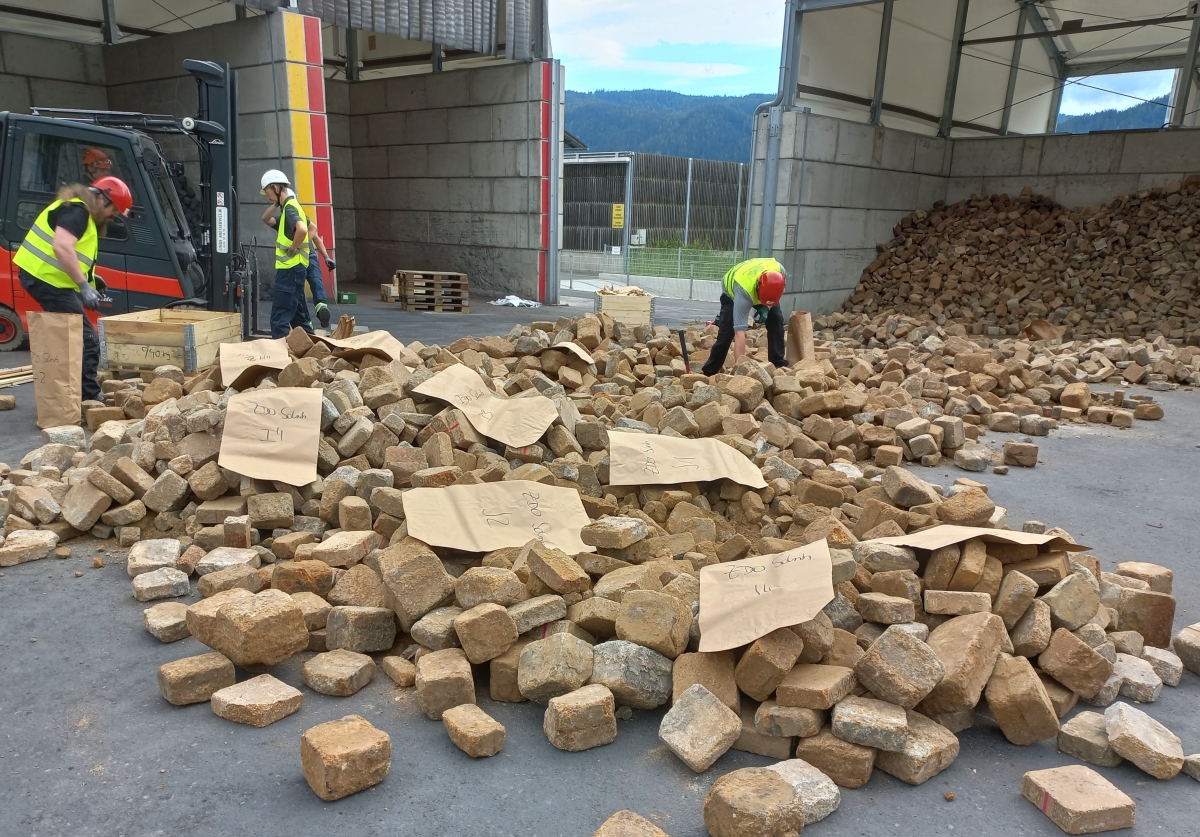Fraunhofer presents key component for digital data exchange according to European values
27.02.2019The digital networking of the world is forging ahead. This makes new business models, smart services and innovative service offerings possible. The prerequisite for this is the secure exchange of data in the value added chain. Meanwhile, the calls for German and European solutions in the fiercely competitive market for industrially compatible cloud-based solutions are becoming louder and louder. The International Data Spaces (IDS) initiative, established under the auspices of the Fraunhofer-Gesellschaft, enables open data marketplaces for business where data can be securely exchanged between trustworthy partners. On 22.02.2019, the International Data Spaces Association presented concrete results with experts and decision-makers from research, industry and politics, gave perspectives on further developments and discussed necessary investments in local data sovereignty and AI.
IDS is a central part of a secure data infrastructure and thus key technology for innovative applications of artificial intelligence (AI) and the competitiveness of Germany and Europe in the important market segment of platform economy. It focuses on the implementation of European values in digital data exchange and enables fair digital ecosystems. The IDS is based on the research project "Industrial Data Space" of the Fraunhofer Gesellschaft. In this project, which is funded by the German Federal Ministry of Education and Research (BMBF), Fraunhofer experts from a total of twelve institutes have been developing a reference architecture for the secure data space and its implementation since 2015. With 40 use cases from the fields of production, logistics, energy, medicine and telecommunications, among others, and with 98 members from 18 countries, the IDS is well on its way to establishing itself as a standard.
Long-term competitiveness for fair digital ecosystems
The IDS is already being used in cloud platforms and software services. To this end, the IDS initiative is focusing on establishing an open standard for data sovereignty. All interest groups involved are jointly developing an open reference architecture for a secure data infrastructure. These include identity management, integrity and configuration of interfaces, logging and clearing of data transactions as well as standardization, certification and audit capability.
Anja Karliczek, Federal Minister of Education and Research, emphasized: “KI - Made in Germany is becoming a new seal of quality in dealing with data. The International Data Space enables secure and fair data exchange in Germany and Europe. It creates the foundations for the digital sovereignty of all involved and contributes significantly to the competitiveness of German companies. The IDS is an important building block for a European data infrastructure and is thus the engine of the European ‘Data Airbus’ planned by my colleague Altmaier.”
Prof. Reimund Neugebauer, President of the Fraunhofer Gesellschaft, explained: “Digitization is the key to social and technological development. It is changing the way people work and live. The Industrial Data Space forms the basis for the secure and self-determined exchange of data on the foundations of Fraunhofer research. It also creates a secure data space that enables companies of all sizes and from all industries to confidently manage their data assets. It is thus an important component of the digital infrastructure that helps to exploit the opportunities offered by AI applications for the bene-fit of people and companies. The IDS plays a key role in ensuring the long-term competitiveness of our economy.”
Dr. Reinhold Achatz, CTO thyssenkrupp AG and Chairman of the IDS Association, emphasized: “Industry needs open, reliable and jointly established standards in order to efficiently shape hybrid value added chains together. The IDS initiative offers companies of all sizes and from all industries the opportunity to help shape the foundations for their future data exchange – an enormous opportunity that must be seized.”
Prof. Dr. Boris Otto, Head of the Fraunhofer Institute for Software and Systems Engi-neering ISST and Deputy Chairman of the IDS Association, reported: “The spread of digital technologies and artificial intelligence is changing business models: Data is no longer an "accessory" to physical production processes, it is increasingly becoming a strategic resource in digital ecosystems. With the IDS, we are creating the architecture that will make such digital ecosystems successful. To achieve this, we needed broad support from industry as well as backing from policy makers and a neutral intermediary like Fraunhofer. Fortunately, with our IDS initiative, this triad relationship led to success.”
The participants in the IDS initiative are creating a common standard that is already being used in the first cloud platforms and software services. The faster and broader the adoption by market participants is, the more are European values spread into international data value added chains, thus forming fair and sustainable digital ecosystems. The IDS initiative therefore possesses the ability to shape the standards of international data exchange on an international level. It offers an alternative to monopolistic "hyper-scaling" platforms on the one hand and to centrally controlled digital services on the other.
www.fraunhofer.de


